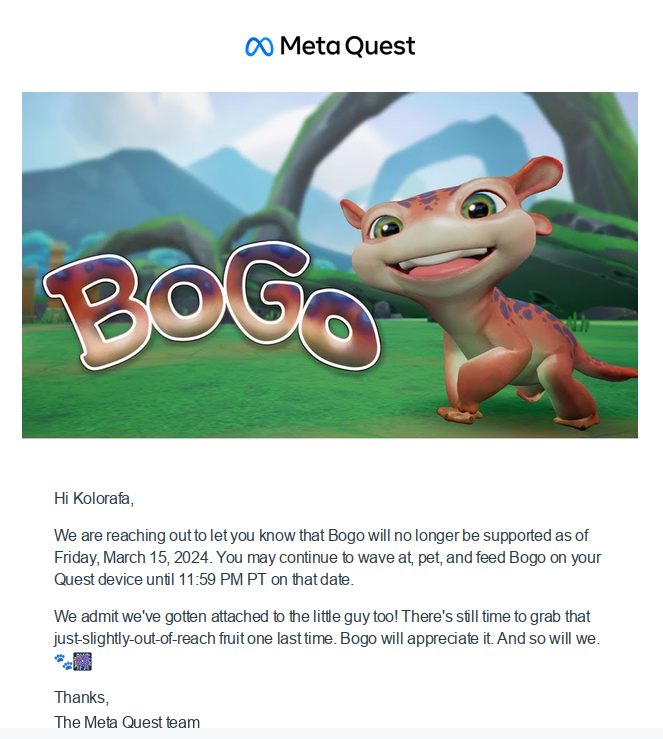This should be illegal, companies should be forced to open-source games (or at least provide the code to people who bought it) if they decide to discontinue it, so people can preserve it on their own.

This should be illegal, companies should be forced to open-source games (or at least provide the code to people who bought it) if they decide to discontinue it, so people can preserve it on their own.

And then what? Corporations will just slap a disclaimer on their products informing you of said condition and that you need to agree, understand and accept these terms and conditions and call it a day.
Aye, but forcing them to put a clear “We support this until this date” label will make that a mandated part of their marketed.
That or, you know, force companies to release server software when they sunset support for their product. That would also be nice.
Sticking to what they stated becomes a math problem. Assuming they don’t care about consumer trust, they will look at the cost of keeping the service running vs the cost of the fine for pulling the plug, then pull the plug anyway.
Which is why we need meaningful consumer protections around this. Something with teeth to force publishers to back these sorts of things.
This could be a double edged sword. I always hear people complain about things just being copies of old versions and nothing new being done anymore. The iPhone 15 isn’t different enough from the iPhone 12, 13, and 14. Every movie is a sequel. Car designs are too boring. Too many products only come in black or white. Stuff like that. If companies are required to agree to long support cycles, there is no way they’ll risk trying anything new. So we’ll just get the same rehashed stuff they know works. Eliminating the ability to take risks will halt progress in a lot of areas.
This seems like some kind of VR tamagotchi, it’s not the worlds most critical service. That context is probably important. The degree of regulation needs to be aligned with the criticality of the service.
I feel like lack of ownership of more and more things in our lives is a sign of problems. Sure, this is just a silly game. But this kind of shit is already hitting cars.
Is this new, or has it always been around and simply hidden by a survivorship bias?
It could also be that things launch and fail faster due to technology. Things can be brought to market more quickly, feedback loops are faster and more efficient, so the “fail fast” mantra is easier than ever to pull off.
With software products it’s also fairly easy to throw stuff against the wall and see what sticks. The barrier to create this stuff is just time, and the cost to scrap it is basically nothing. It’s not like a physical product where a lot of money is invested in tooling for manufacturing, or raw materials needed to feed into the supply chain.
This comment is a little all over the place. I guess there are a lot of lenses to see this through.
And then products without that label would gain at least a little a bit of market share. Most people still buy inefficient fridges because they are shinier, but at least a few read those yellow labels mandated by law and choose the more efficient ones.